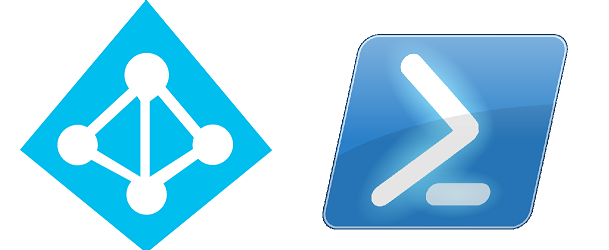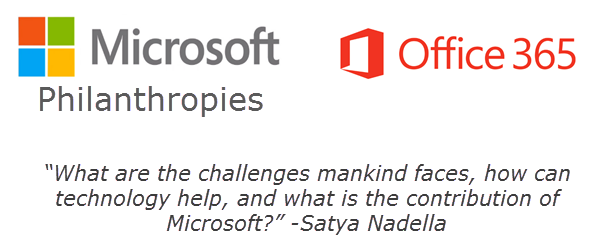The new Azure Portal (https://portal.azure.com) has been up and running for quite some time. We’re finally seeing some Azure AD love in the new portal, albeit still in preview. This walkthrough is about how to assign Azure AD application permissions in the new portal. This post assumes that you’ve already created your Azure AD Application. […]
Azure
Automate the creation of an Azure AD Application
Creating a new application inside of Azure AD is a pain. First, you have to go to the portal, then create the application itself, and then assign the necessary permissions. Depending on what type of service you want to access, you then need to either create a Client Key or upload a certificate. If you […]
Office 365 for Non-Profits
By now, lots of folks in the technology industry, and especially those folks working on the Microsoft stack, are aware of Office 365. It’s a platform for collaboration and productivity and is expanding like crazy. For most for-profit companies, it’s also very affordable. However, what about all of the organizations that are not-for-profit? Many of […]
Intro to the Microsoft Graph .NET Client Library
A month or so ago, the Microsoft Graph .NET Client Library was released. Working with the Graph client has largely been direct web requests up until now, so the client library is a welcome addition. However, as I started to explore the library, I discovered that finding documentation was a bit challenging. This is a […]
The Help Desk demo, Part 8–Deploying to Azure
What good is an application if folks can’t actually use it? So far, we’ve just been running and testing the application in Visual Studio. That’s all fine and well, but asking our Help Desk operators to fire up Visual Studio each time they need to go to work just doesn’t really seem feasible. We could […]
The Help Desk demo, Part 7–Wiring it all up
To this point, we’ve been creating the building blocks that will enable our Help Desk dashboard. Let’s take all of that effort and put it to good use! There are some changes to the various _Layout.cshtml files and such, but the site is driven completely by Home/Index.cshtml, so let’s start there. The home screen contains […]
The Help Desk demo, Part 6–SharePoint Announcements
The Help Desk dashboard needs to be able to display any current Announcements from the Operations team. The idea is that the Operations team has a SharePoint team site and has added a standard Announcements app. When useful bits of information need to be made available, they add a new announcement to the app. It […]
The Help Desk demo, Part 5–SQL Azure
For the Help Desk dashboard to keep track of the current Support Tickets, we need to store and retrieve that information from a database. In our case, we’ll utilize SQL Azure because cloud stuff is awesome! Really, our database is incredibly simple. I won’t cover creating a SQL Azure database in depth since there are […]
The Help Desk demo, Part 4–Microsoft Graph
Admittedly, this is the section of the application that I’m most excited about, since it’s brand spanking new technology. Sure, it’s been around for a while as the Unified API, but now it’s officially official and it’s called the Microsoft Graph. The Microsoft Graph is a REST based service that provides a single endpoint to […]
The Help Desk demo, Part 3–Authentication
Now that we have our application configured in Azure, we need to update the Startup.Auth.cs class (in the App_Start folder) so that the application can utilize Azure Active Directory authentication for the users. The Startup.Auth.cs class looks like this. using System;using System.IdentityModel.Claims;using System.Threading.Tasks;using System.Web;using Microsoft.Owin.Security;using Microsoft.Owin.Security.Cookies;using Microsoft.Owin.Security.OpenIdConnect;using Microsoft.IdentityModel.Clients.ActiveDirectory;using Owin;using BusinessApps.HelpDesk.Models;using BusinessApps.HelpDesk.Helpers; namespace BusinessApps.HelpDesk{ public partial class Startup { […]

